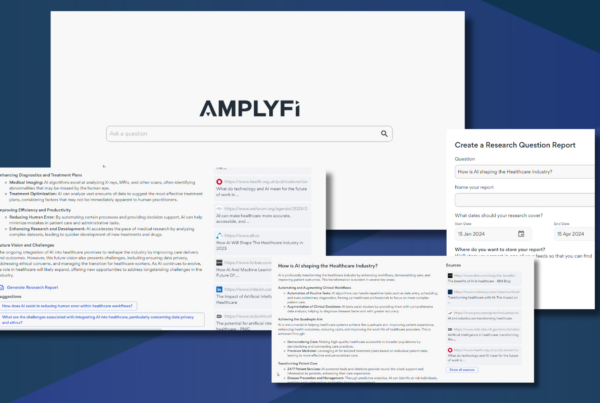
In short, federated search is an application or service that allows users to submit their query to search multiple, distributed information sources and retrieve aggregated, ranked and deduplicated results.
The term ‘Federated search’ has gone by many different names over the years, often causing some confusion over what people mean when they use it. The technology has been called: Distributed Search, Broadcast Search, Unified Search, Data Fusion, Meta-Search, Parallel Search, Cross-Database Search, Single Search, One-Search, Integrated Search and Universal Search among others. For the most part, all of these names mean the same thing.
To better understand the term it can be helpful to first understand it in context. Tools such as AMPLYFI’s DeepResearch search engine use federated search to query multiple databases, whether subscribed, public or in the deep web, from a single search box in real-time. It can capture results from premium sources, which sit behind paywalls or subscriptions, and then return the results to the user ranked and deduplicated.
A common query regarding federated search is whether it is a master index or a real-time (on-the-fly) search. A common misconception is that it refers to the searching of content that has been “federated” into a single index, where queries can be entered and results shown come from one master index. The distinction here is crucial – federated search is the live search of heterogeneous sources, as opposed to an approach where content is harvested, indexed and accessed from one source.
AMPLYFI’s real-time approach gives us an advantage over building a master index. Interested in finding out more? Get in touch with our team to request a demo today.
Updated by Louise O’Reilly from original publication at http://deepwebtechblog.com/do-you-mean-federated-search/








